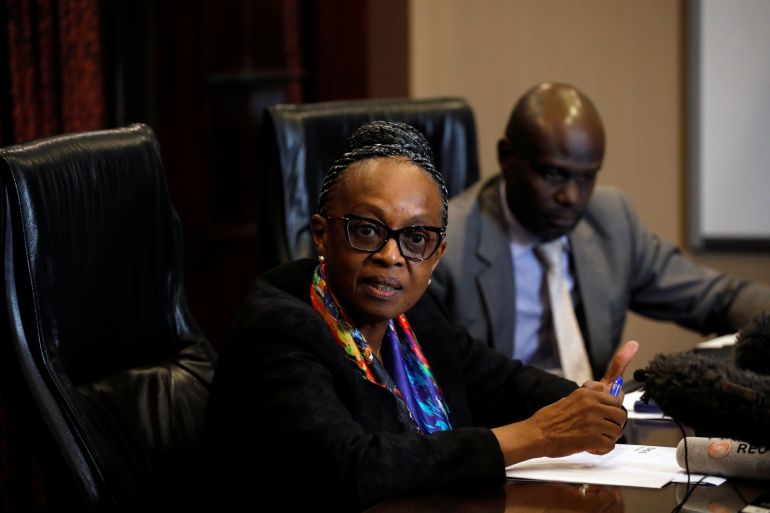COVID deaths in Africa to fall by 94% in 2022: WHO
Richer countries and southern African nations have had around double the mortality rates of poorer ones in other parts of Africa.

Deaths on the African continent from COVID-19 are expected to fall by nearly 94 percent in 2022 compared to last year, the World Health Organization (WHO) has said, citing its own modelling.
“Our latest analysis suggests that estimated deaths in the African region will shrink to around 60 a day in 2022 … Last year, we lost an average of 970 people every day,” WHO Regional Director for Africa Matshidiso Moeti told a virtual news conference.
Keep reading
list of 4 itemsMexico’s teachers seek relief from pandemic-era spike in school robberies
‘A bad chapter’: Tracing the origins of Ecuador’s rise in gang violence
Why is the US economy so resilient?
The gulf in the numbers is due to increased vaccination, improved pandemic response and natural immunity from prior infections, the WHO said.
As of the end of May, Africa had reported over 11.8 million confirmed COVID-19 cases and more than 250,000 deaths since the pandemic began, according to data from the WHO Africa’s office, which will publish more details of its modelling later in the day.
Richer countries and southern African nations have had around double the mortality rates of poorer ones in other parts of Africa, partly due to co-morbidities that increase the risk of death, the WHO analysis found.
Around 23,000 deaths are expected by the end of the year, provided current variants and transmission patterns remain the same, according to the analysis. The findings infer that only one in 71 COVID-19 cases are recorded in Africa and that about one in three deaths have been missed.
Although African countries struggled early in the pandemic to secure COVID-19 vaccines as rich countries hoarded available doses, many are now well-supplied with shots but are having trouble getting them into arms. The reasons include hesitancy and logistics.
But the WHO insists that there is more to be done.
“The job is not yet done,” Moeti told the briefing. “Every time we sit back and relax, COVID-19 flares up again. The threat of new variants remains real, and we need to be ready to cope with this ever-present danger.”